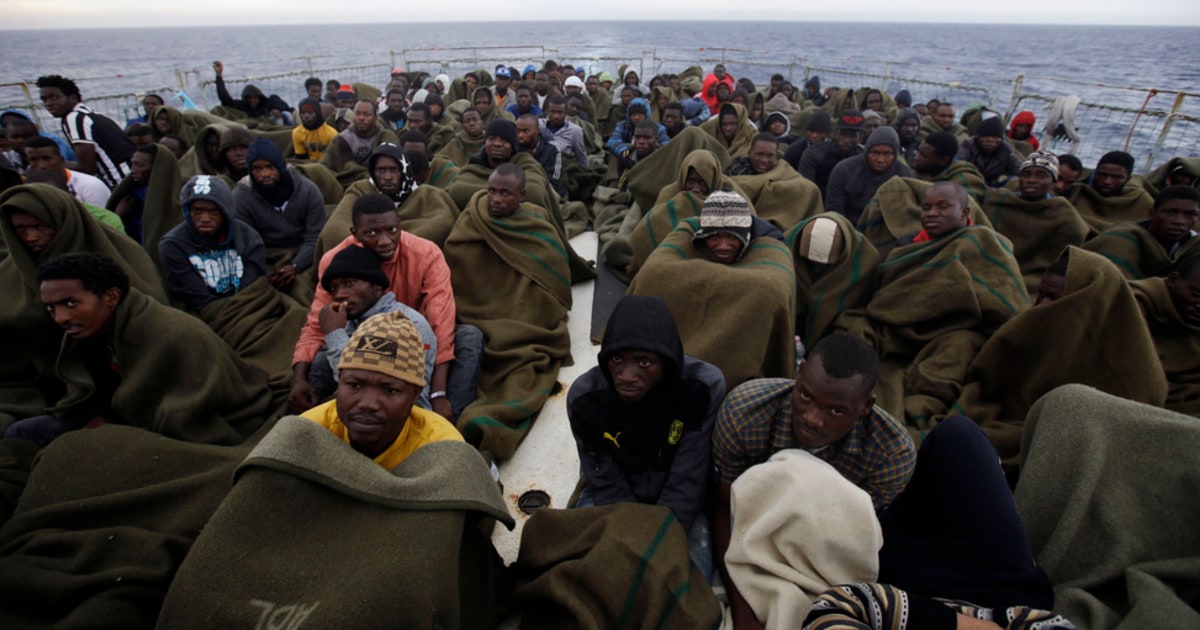- Click to share on Facebook (Opens in a new window)
- Click to share on Twitter (Opens in a new window)
- Click here to share on LinkedIn (Opens in a new window)
- Click to email a friend (Opens in a new window)
UN fails in favor of refugees due to climate change 0:45
(CNN) - Refugees fleeing the effects of the climate crisis cannot be forced to return to their countries of origin by adoptive countries, a United Nations panel ruled, in a historic decision that could open the door to an avalanche of legal claims of displaced people around the world.
The UN Human Rights Committee was issuing a trial on the case of Ioane Teitiota, who requested protection from New Zealand after claiming that her life was at risk in her home country, Kiribati. The Pacific Island runs the risk of becoming the first country to disappear under rising sea levels.
- Trump's problem is not Mexico, it is Central America, and it is getting worse
The committee ruled against Teitiota on the grounds that their life was not at imminent risk, but also described that countries could violate people's international rights if they are forced to return to countries where climate change poses an immediate threat.
"Without strong national and international efforts, the effects of climate change in recipient states can expose people to a violation of their rights," said his ruling.
The ruling is unlikely to have an immediate impact on the citizens of other countries, given that even the serious situation in Kiribati did not reach the threshold for Teitiota's claim to succeed. But the decision could have a significant impact on future claims, as the number of people forced to leave their homes increases due to the intensification of the climate emergency.
- Sudan could be the world's first uninhabitable country because of climate change
- Millions of people in Africa are at risk of a famine over climate change
Droughts, loss of crops and rising sea levels will force tens of millions to move to other areas in the coming years. A 2018 study by the World Bank found that 143 million people in South Asia, sub-Saharan Africa and Latin America are at risk of becoming climate migrants.
In its ruling, the committee cited articles 6 and 7 of the International Covenant on Civil and Political Rights, which guarantee the inherent right of the person to life.
"Since the risk of an entire country being submerged under water is such an extreme risk, living conditions in that country may become incompatible with the right to life with dignity before the risk is realized," he added. decision.
The Intergovernmental Panel on Climate Change has identified Kiribati, the native nation of Teitiota, as one of the six countries of the Pacific Islands most threatened by rising sea levels. The report states that, due to coastal erosion and freshwater pollution, Kiribati could become uninhabitable as early as 2050.
It has been part of a group of Pacific nations that is sounding the alarm about climate change in recent years, but has faced resistance from nearby Australia.
Refugees






/cloudfront-eu-central-1.images.arcpublishing.com/prisa/AV2KB2TX55ASBDPTNY4XHY7QW4.jpg)

/cloudfront-eu-central-1.images.arcpublishing.com/prisa/FIJVMOBHZRWVDBKS3NAQ2M4JRE.jpg)
